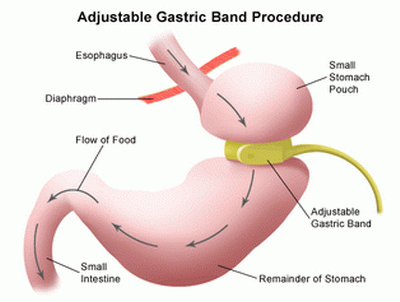
The Unexpected Benefits of Bariatric Surgery
POSTED BY BRIGHAM AND WOMEN'S HOSPITAL JANUARY 23, 2013
After undergoing bariatric surgery on February 28, 2012, Chuck Uglietta, 34, of Peabody, MA, not only lost a lot of weight, but he also trimmed quite a bit off his golf handicap – from a respectable 12-14 to an impressive 2-4. But, of course, that wasn’t the reason why he opted for the surgery. It was just another pleasant surprise.
Chuck was a pretty happy guy on the morning of September 27, 2008. Besides being a popular assistant coach for the Saugus High School boys and girls golf teams and a disc jockey in a thriving wedding business, Chuck was about to get married to his longtime sweetheart, Jennifer.
But, despite that happiness, it was hard for Chuck to ignore that he wasn’t healthy that day and hadn’t been for a long time. He weighed 527 pounds and had high blood pressure, diabetes, and obstructive sleep apnea.
“I still have the vest that I wore on my wedding day. It was a 6X,” says Chuck. “My tuxedo pants were a 72. My jacket was a 78. My wife loved me for who I was, but I just couldn’t live that way anymore.”
After struggling with his weight throughout his life and pondering weight-loss surgery for several years, Chuck finally reached out to Scott Shikora, MD, FACS, Director of the Center for Metabolic Health and Bariatric Surgery, for help at the end of 2011. Several months later, Chuck underwent a laparoscopic sleeve gastrectomy, a minimally invasive procedure that reduces the stomach’s volume by about 60-80 percent. Now, less than one year after the surgery, Chuck is summoning folks onto the dance floor and swinging the golf club at 261 pounds, less than half of his peak weight – and he isn’t done yet.
Bariatric surgery is commonly referred to as weight-loss surgery. But it just as aptly could be described as “health-gain surgery,” as the health benefits for Chuck and many other bariatric surgery patients go far beyond weight loss.
Recent research shows that weight-loss surgery has the potential to dramatically improve a variety of health conditions, including heart disease, depression, asthma, infertility (in women), osteoarthritis, and gout. It also is believed to be particularly effective at treating metabolic conditions such as type 2 diabetes, high blood pressure, high cholesterol, fatty liver disease, and obstructive sleep apnea. In some cases, such as type 2 diabetes, patients experience significant improvement within days after surgery. In many cases, the diseases go into remission.
“Many published studies have clearly demonstrated that qualified candidates who opt to have bariatric surgery dramatically improve their chances of living longer and having a better quality of life,” says Dr. Shikora.
For Chuck, the surgery has led to a cornucopia of benefits. It already has helped him achieve optimal cholesterol and blood pressure levels, cure his sleep apnea and diabetes, and boost his energy level. Those are the real reasons that Chuck chose bariatric surgery – a chance at a longer, healthier life.
But he also welcomes the other benefits that have yet to be explored in the scientific literature – a better love life and a better golf handicap. And now that he no longer needs a cart to get around the golf course, his lifetime dream of becoming a club golf professional now seems realistic.
“I’m beginning to see myself as healthy, and I look good, too” says Chuck. “Now everything is possible.”
- Learn more about Chuck’s journey.
- Learn more about the benefits of bariatric surgery.
- Chris P

No comments:
Post a Comment